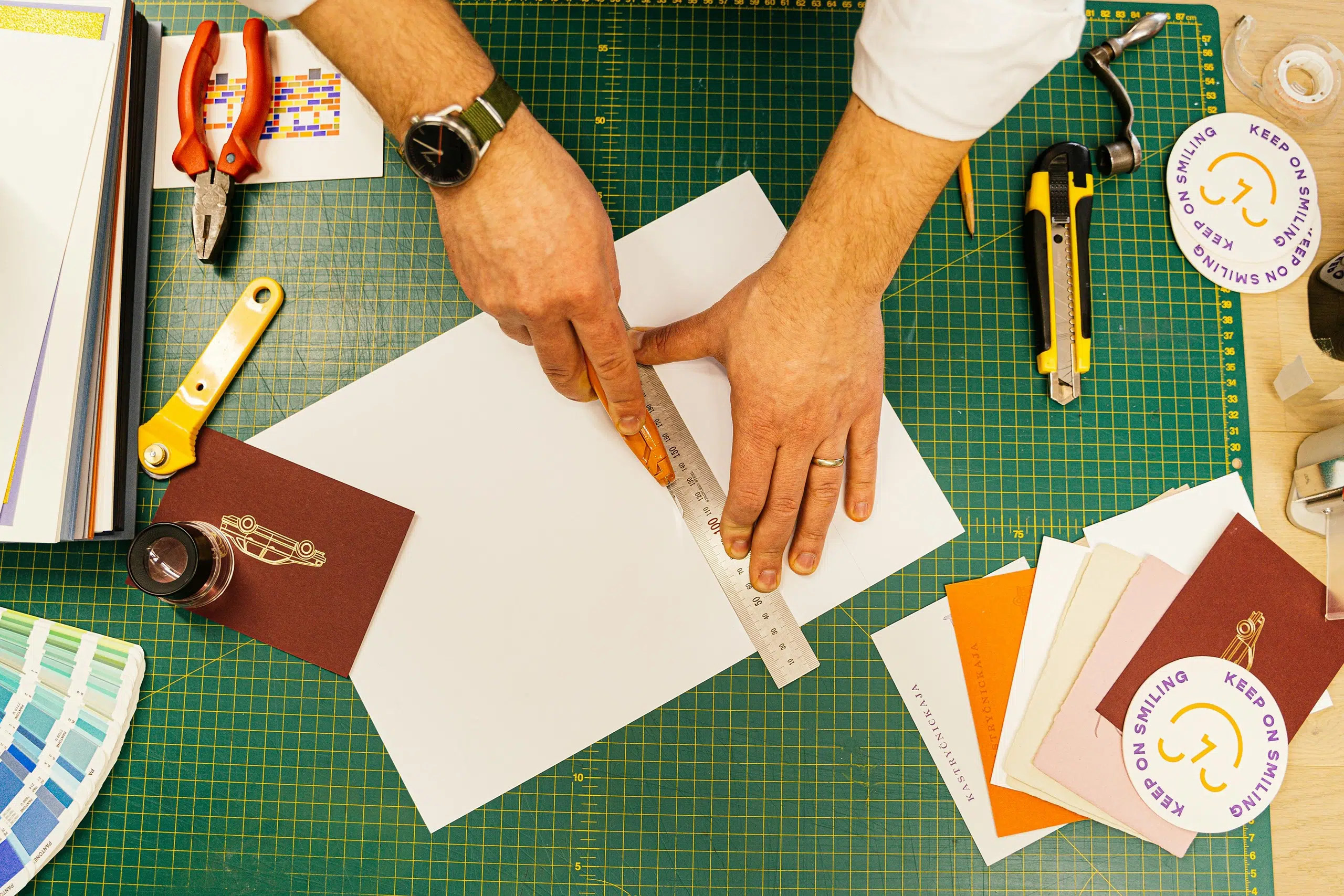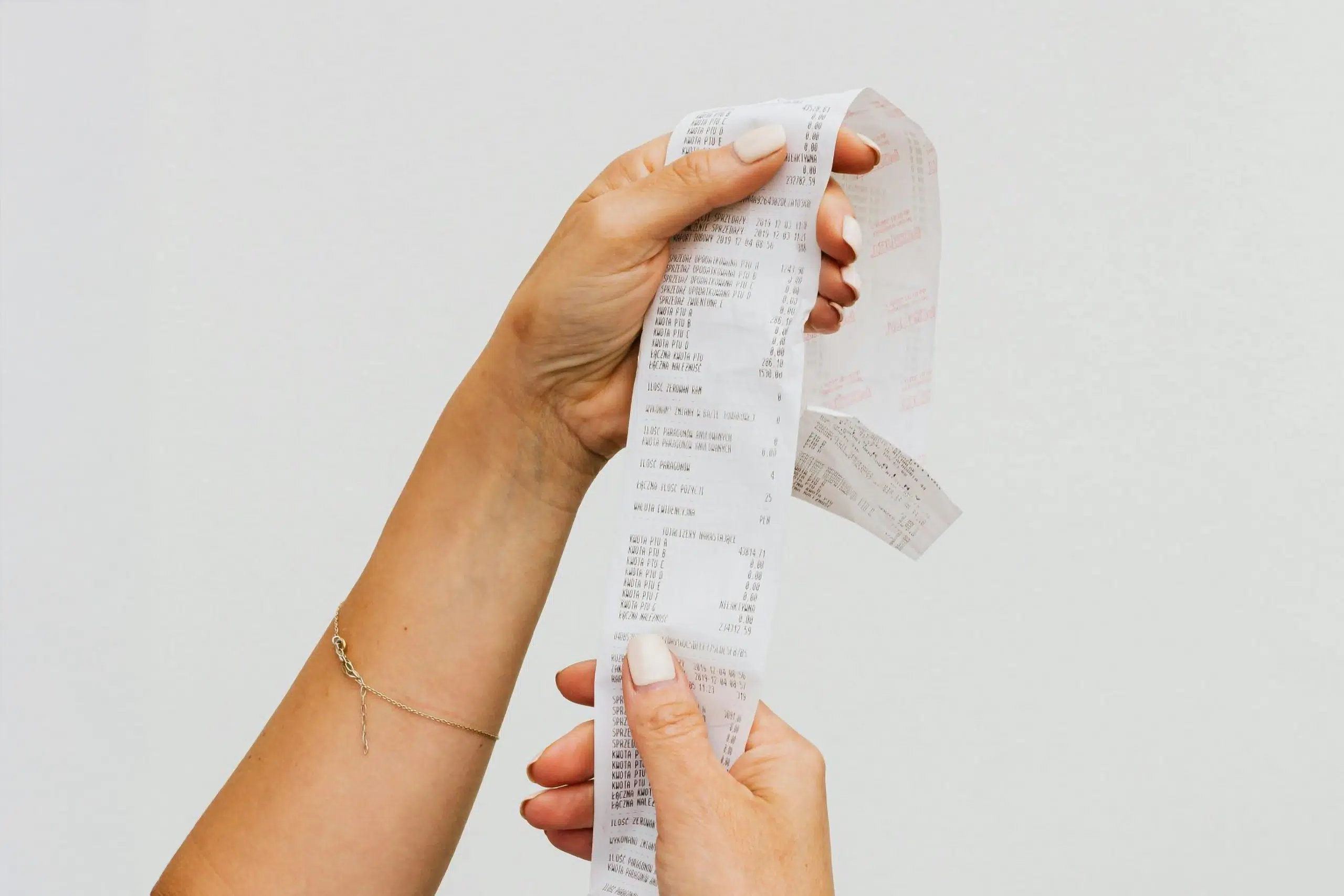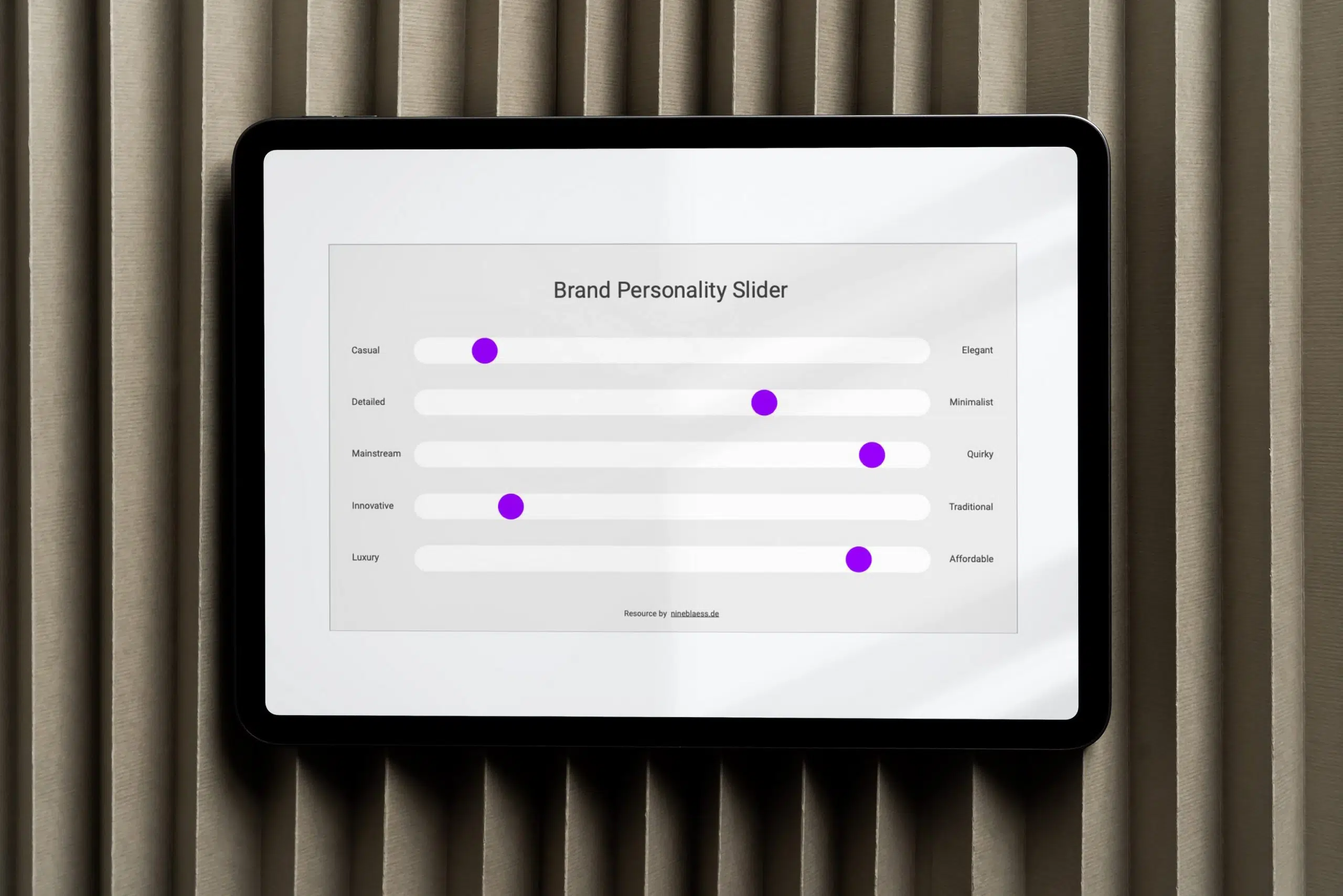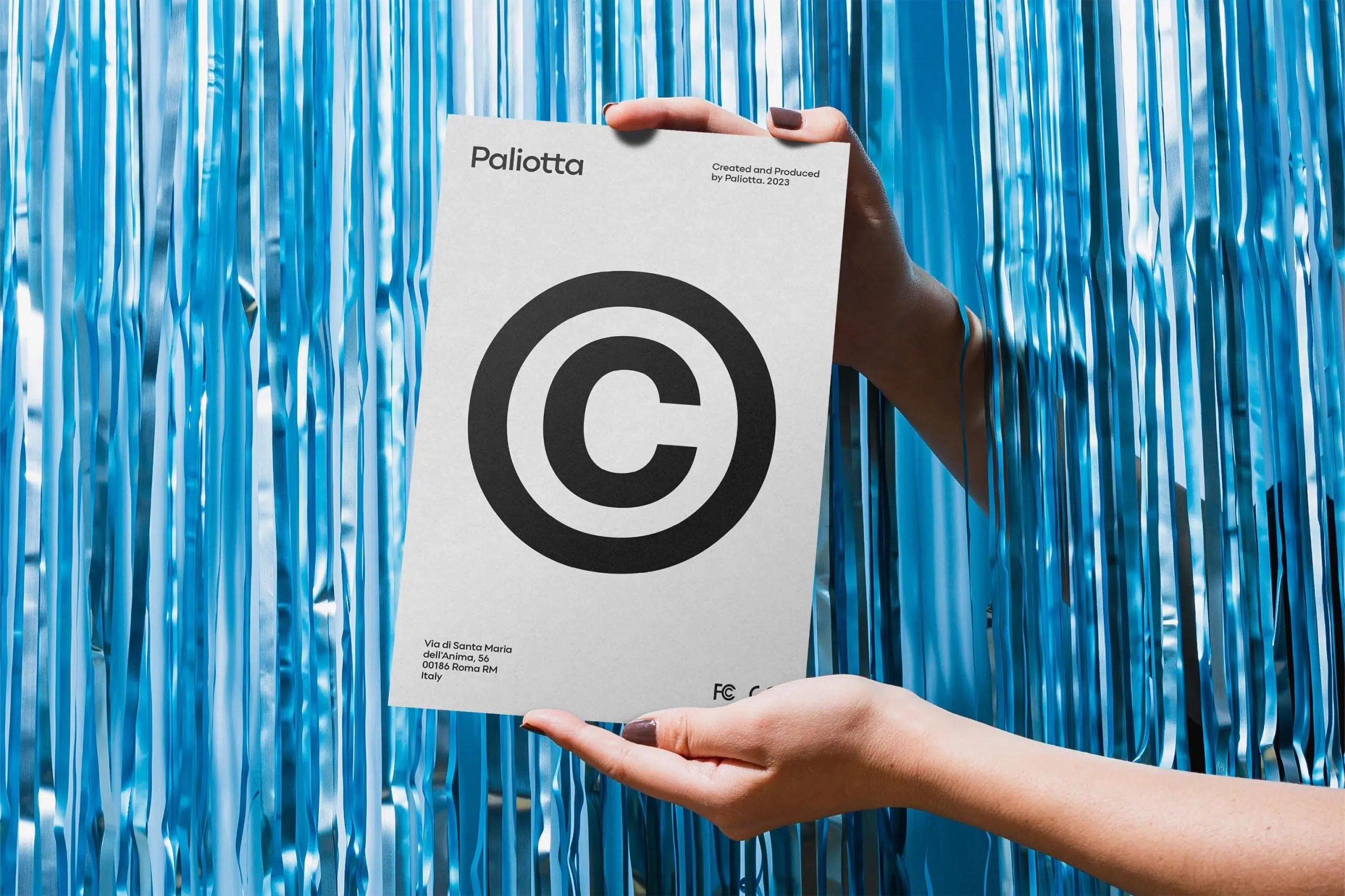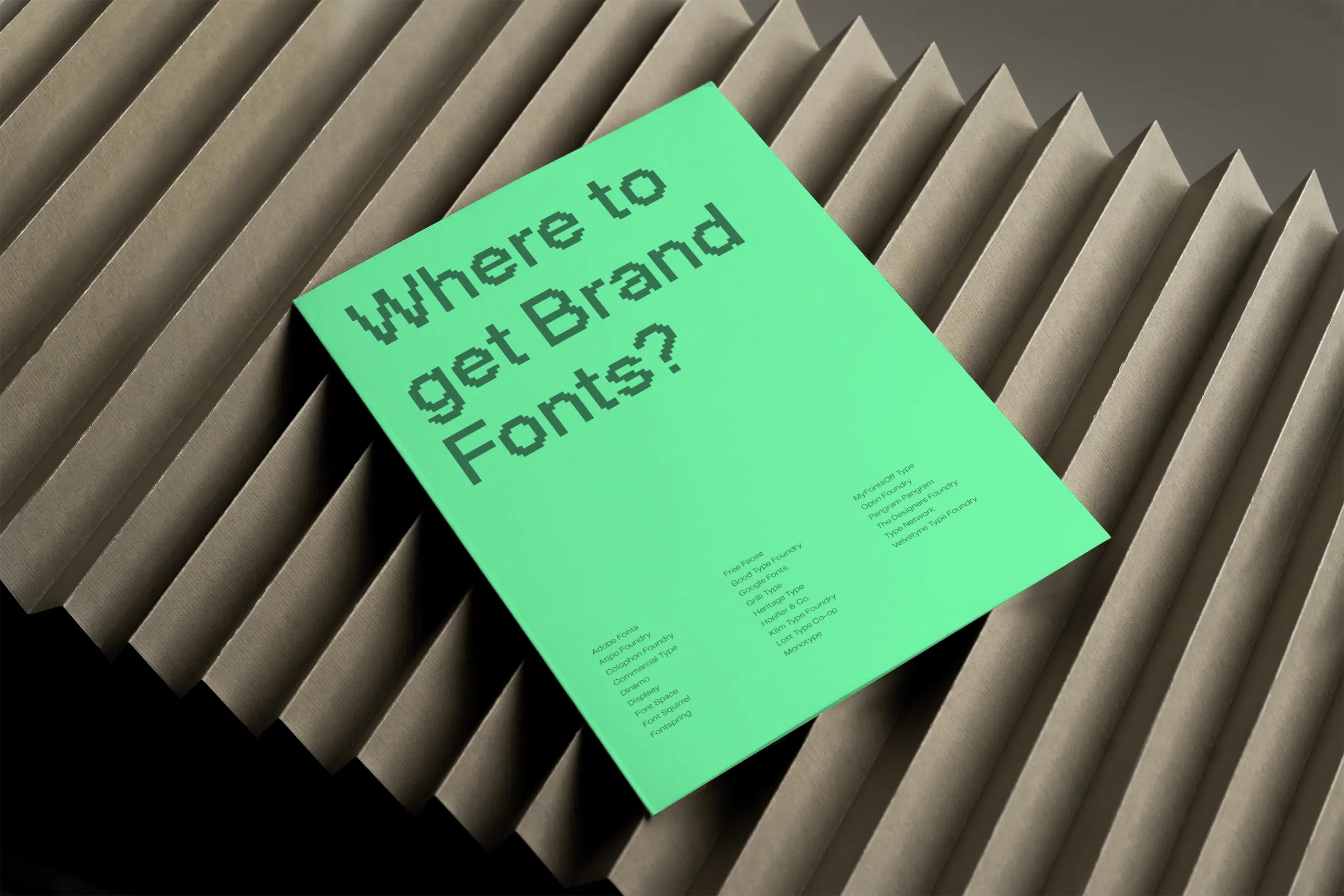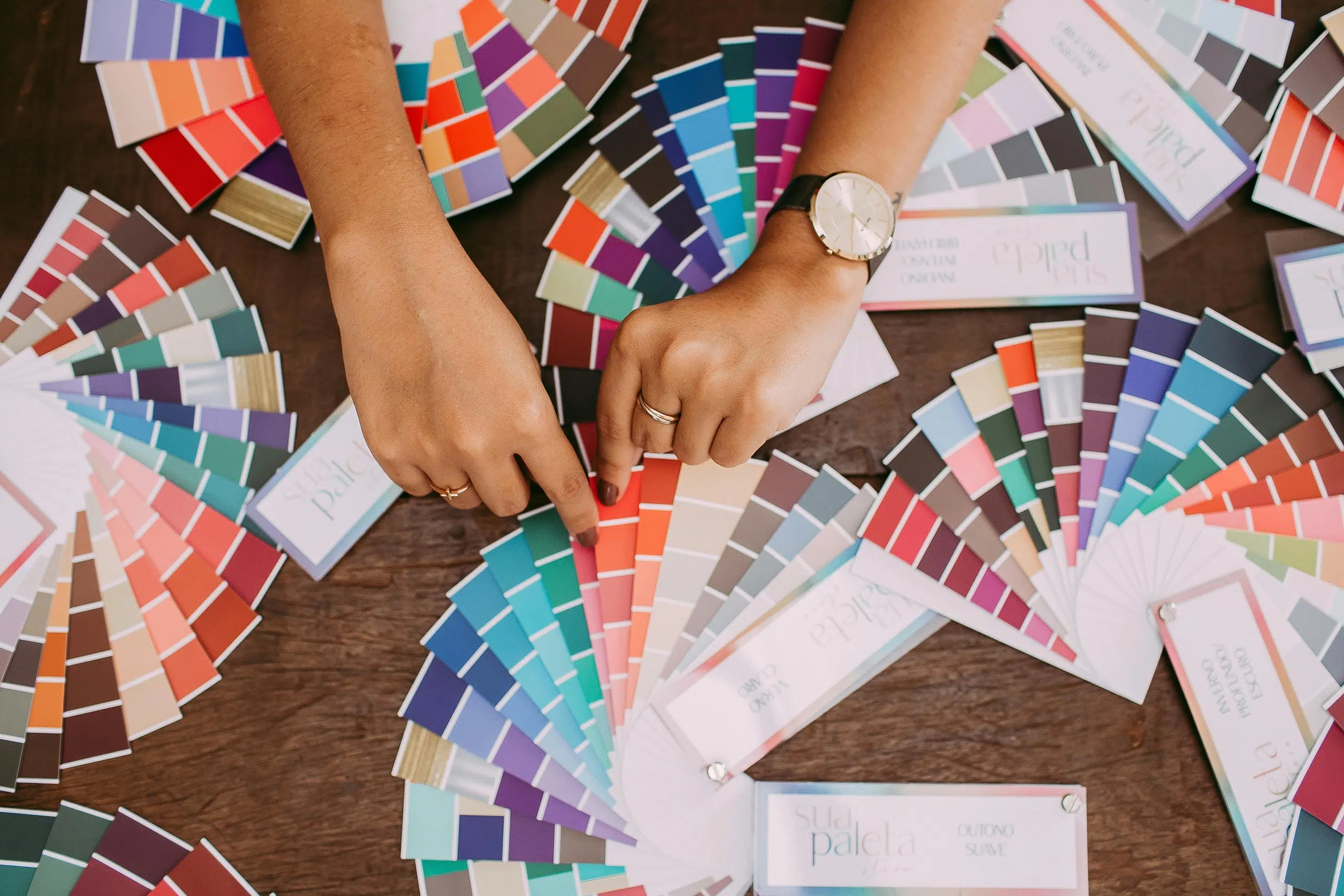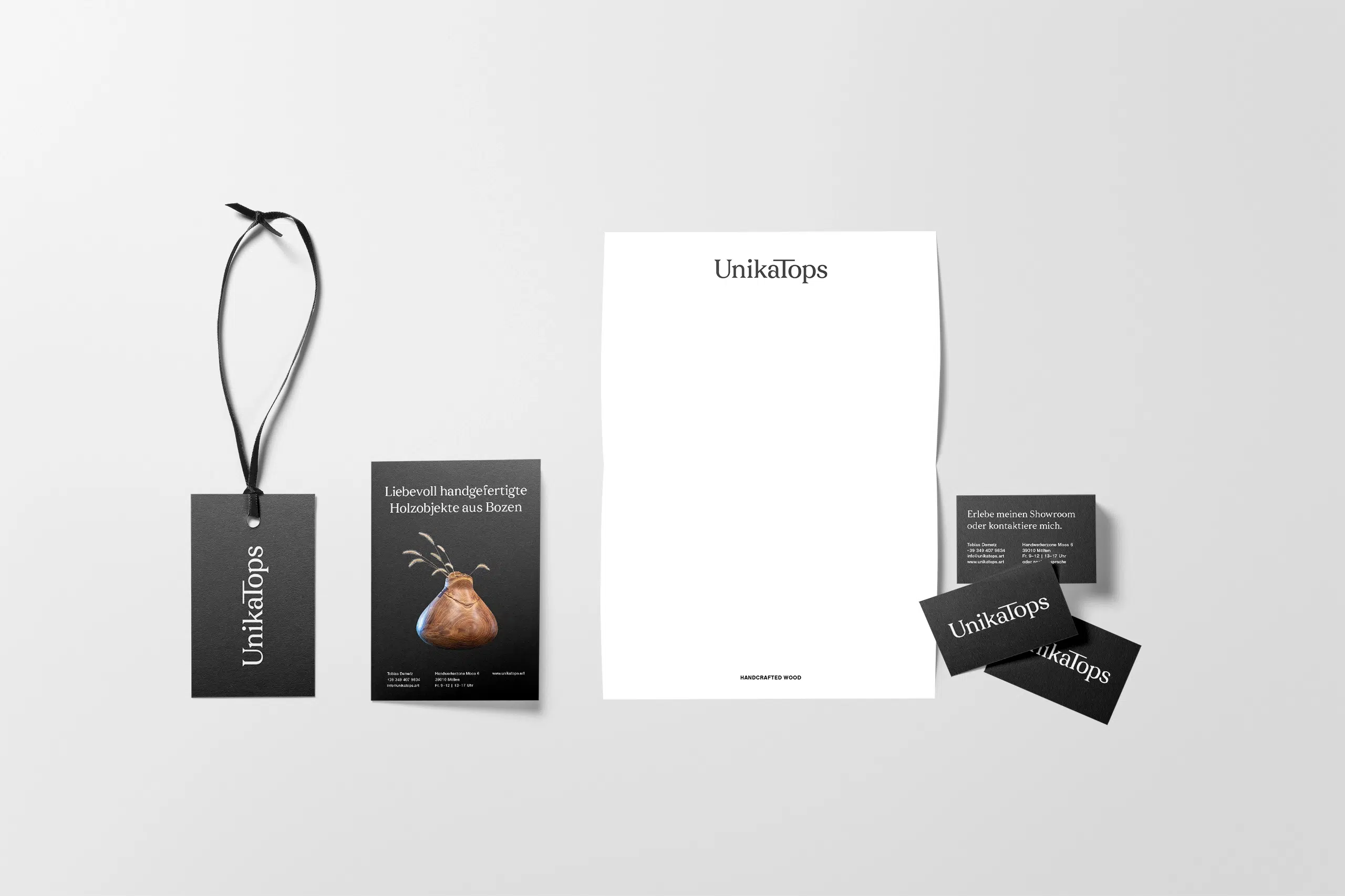I’ve put together a selection of my favourite branding tools, books and courses on branding. They’re all things that helped me when I started out—and do to this day. You might want to bookmark this page.
A quick note: when buying books, consider supporting Bookshop.org, a B Corp alternative to Amazon that supports independent bookshops. I’ve included the links below (plus, I’ll earn a small commission too, which supports my blog).
Books every brand builder should read
I didn’t study branding. I studied architecture and interior design, worked in industrial design and research, and eventually found my way into branding. It took a while, but looking back, it’s where I was always meant to end up.
Nevertheless, I felt like an impostor. Who was I to help businesses with their brands? What did I actually know?
So I read. These are the books that stood out and stuck with me.
Obsessed by Emily Heyward
This is a must-read if you’re new to branding. Heyward, the co-founder of the branding agency Red Antler, has decades of experience helping start-ups such as Casper and Allbirds.
This practical and engaging book is packed with real-world case studies. It’s especially useful if you want to build a modern, human and emotion-driven brand.
Building Distinctive Brand Assets by Jenni Romaniuk
This is an evidence-based look at what makes brands recognisable and memorable.
Romaniuk, from the Ehrenberg-Bass Institute, explains how to create and manage visual and verbal brand assets to make them instantly recognisable.
If you’re serious about long-term brand development, this book is a must-read, as it helps you identify which brand assets to develop to get noticed.
The book actually inspired two of my articles on distinctive brand assets and brand recognition.
How Brands Grow by Byron Sharp
How Brands Grow is not exactly light reading, but you’ll find it interesting if you want to challenge conventional branding advice.
Sharp challenges much of what traditional branding books say by looking at science. Expect data-backed arguments explaining why reach and mental availability are more important than loyalty or targeting niche audiences.
Branding: In Five and a Half Steps by Michael Johnson
This book is quite visual and easy to read.
Johnson takes you through his branding process, from research to execution, making this book ideal for designers who are just starting out in branding.
It’s not just theory; it also includes many brand case studies and examples. A good book to keep on your desk and refer to during different project phases.
Thinking, Fast and Slow by Daniel Kahneman
Although not a branding book per se, Thinking, Fast and Slow is an interesting read if you want to understand how people actually make decisions.
Kahneman explains how our brains use two systems—fast (instinctive) and slow (deliberate)—to process information. The insights will help you write copy, design experiences, or shape people’s perception in other ways.
Alchemy by Rory Sutherland
This is a fantastic mashup of behavioural science, psychology, and creative strategy—and Sutherland’s writing alone is worth the read.
He argues that logic often fails in marketing and that the most effective ideas can seem irrational at first glance. Perfect if you’re a creative thinker who suspects that spreadsheets can’t explain everything.
Buyology by Martin Lindstrom
What really drives buying decisions? According to Lindstrom, it’s not logic or features but emotion, rituals, and subconscious cues.
Buyology digs into a massive neuromarketing study to reveal what’s happening in our brains when we choose brands, often without realising it.
Contagious by Jonah Berger
If your work involves word-of-mouth or social media, this book is for you. Berger breaks down why some ideas go viral while others don’t.
It’s not just about being flashy or loud. It’s about tapping into six principles—like social currency and emotional triggers—that make people want to share.
Further reading
You might also enjoy my list of the best branding book alternatives.
Courses & learning platforms
Skillshare
From strategy to copywriting, this is a goldmine for all things design and business—especially when you’re just starting out. I signed up for a year and found it extremely useful when I first got into freelancing and branding.
The Flawless Typography Checklist by Typewolf
Typewolf’s typography checklist is the single best typography guide I’ve found. While not cheap, I found it worth the money. Typewolf also has a collection of web typography examples you’ll actually want to check out.
The Futur
I also completed a few of The Futur’s courses when I started out in branding and freelancing. I would particularly recommend their typography and lettering classes.
Domestika
Last but not least, I also liked Domestika. It’s quite affordable and courses are fairly short, so you can fit them in between projects.
I particularly liked Tatabi Studio’s course on sustainable packaging.
Free downloads
Brand-building checklist
I created this step-by-step PDF to help you create a brand that actually connects and converts. You can download it here.
The best mockup sites
Bendito Mockup
Bendito Mockup offers a versatile range of premium mock-ups that are full of personality and have been carefully staged. From clothing and packaging to devices, you’ll find everything you need.
Use my code NINE20 to receive 20% off.
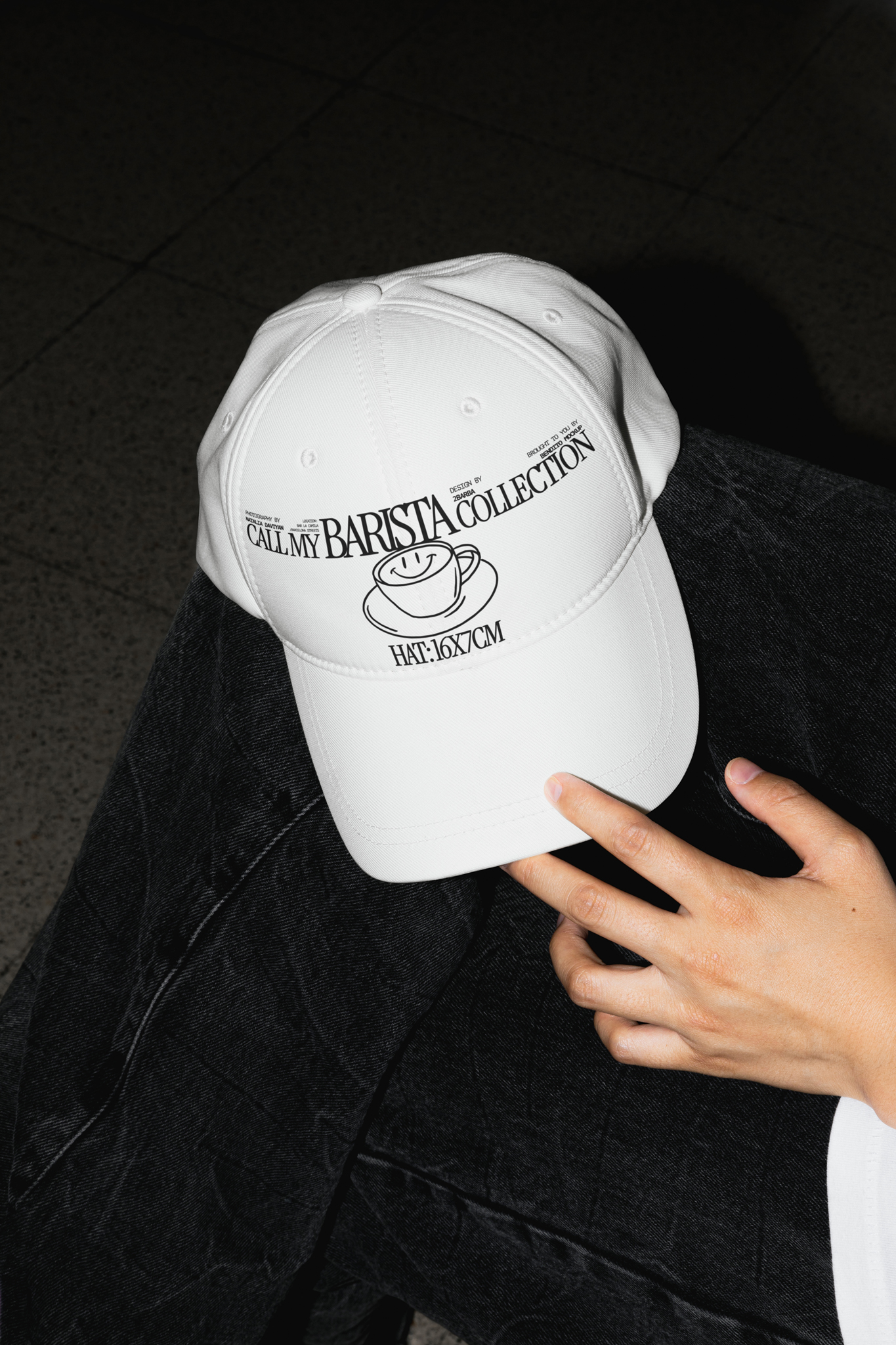
LS Graphics
At LS Graphics, you can choose between mockups with background scenes and isolated items. Compatible with Figma and a browser-based editor—so no Photoshop is needed necessarily.
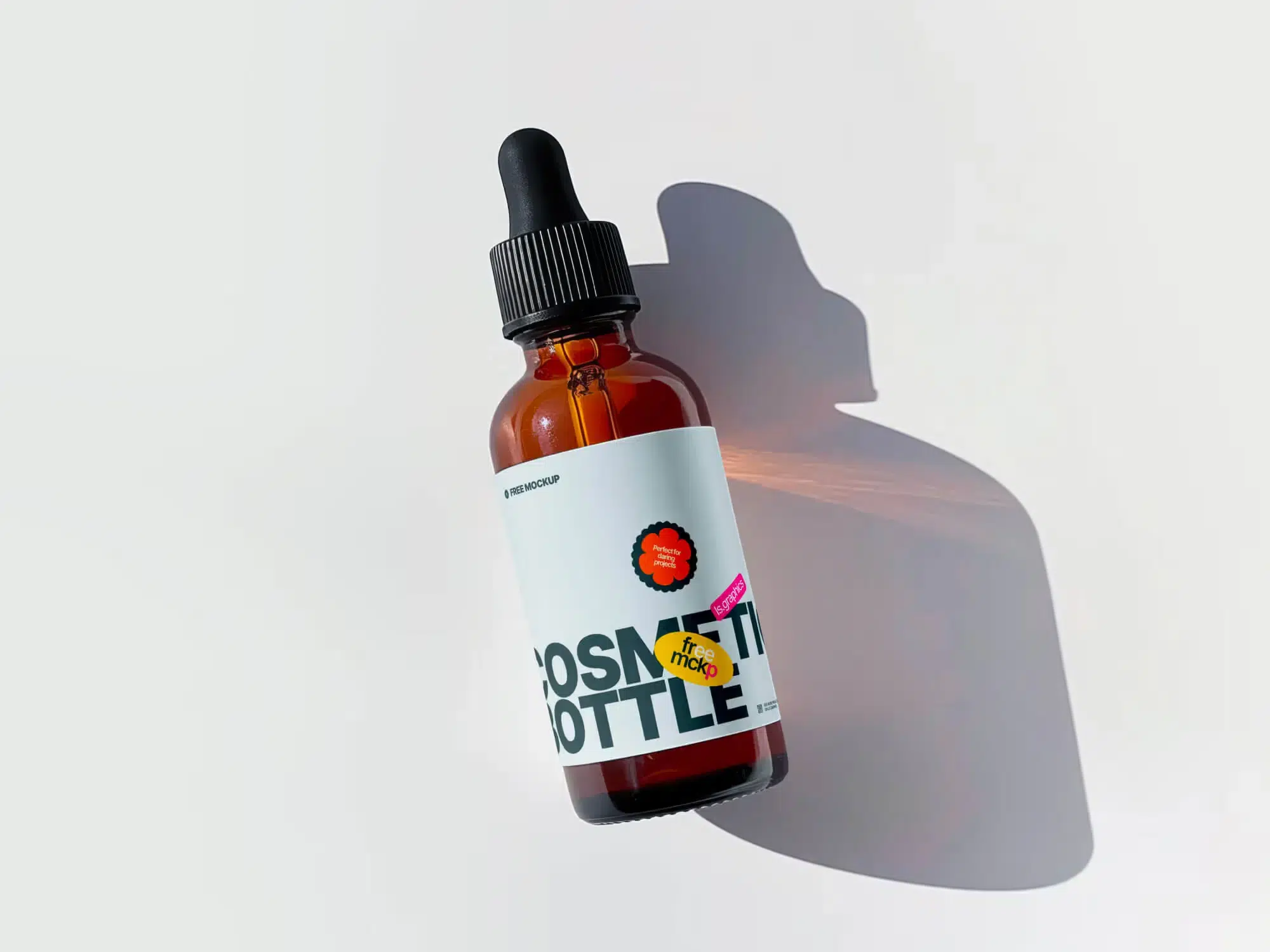
Moyo Studio
Moyo Studio specialises in beautiful mockups with a feminine and elegant touch.
Use my code NINE15 to receive 15% off.
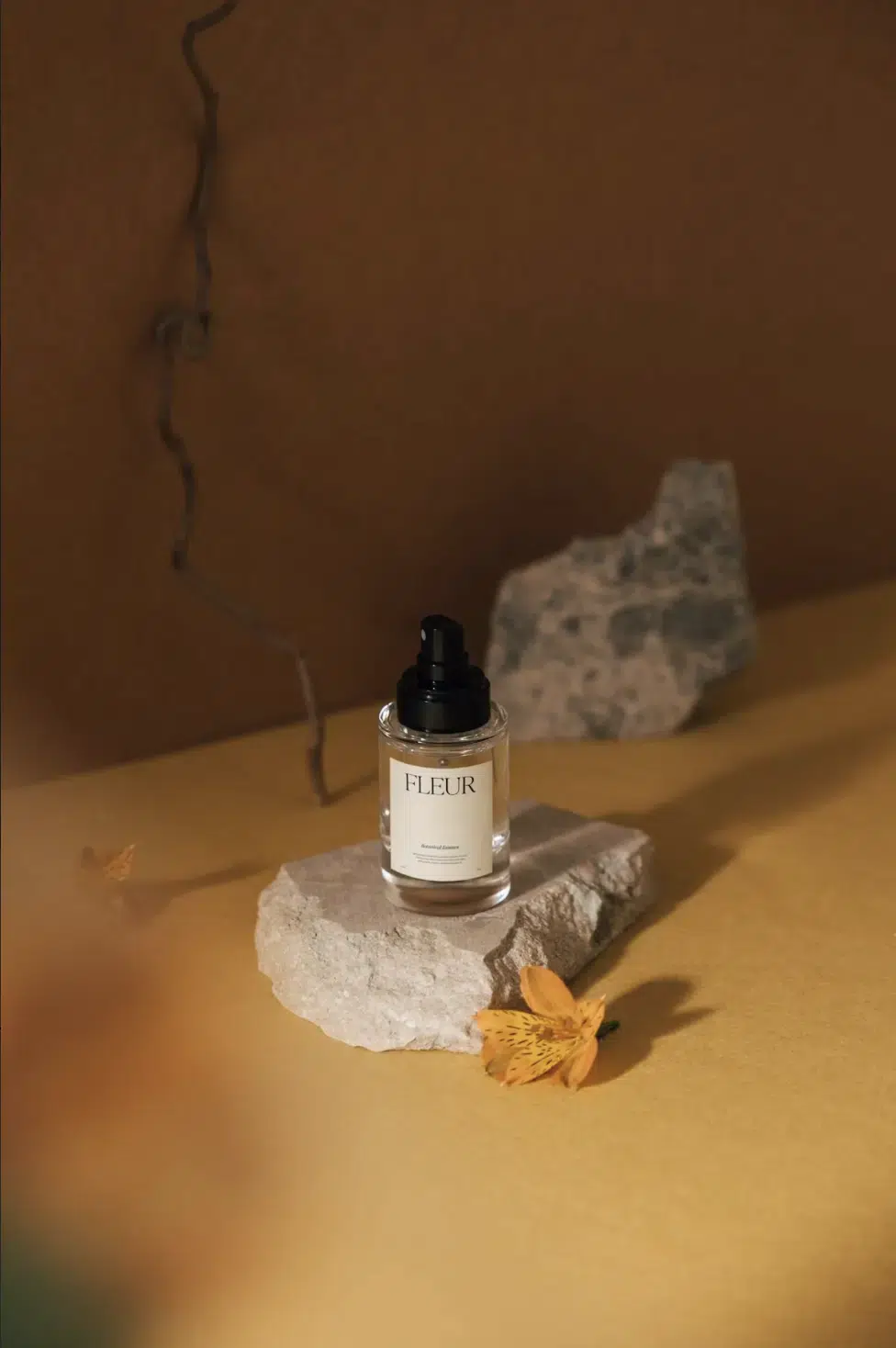
Mockup Cloud
Mockup Cloud features an impressive collection of premium mockups from various sources at a great price point.
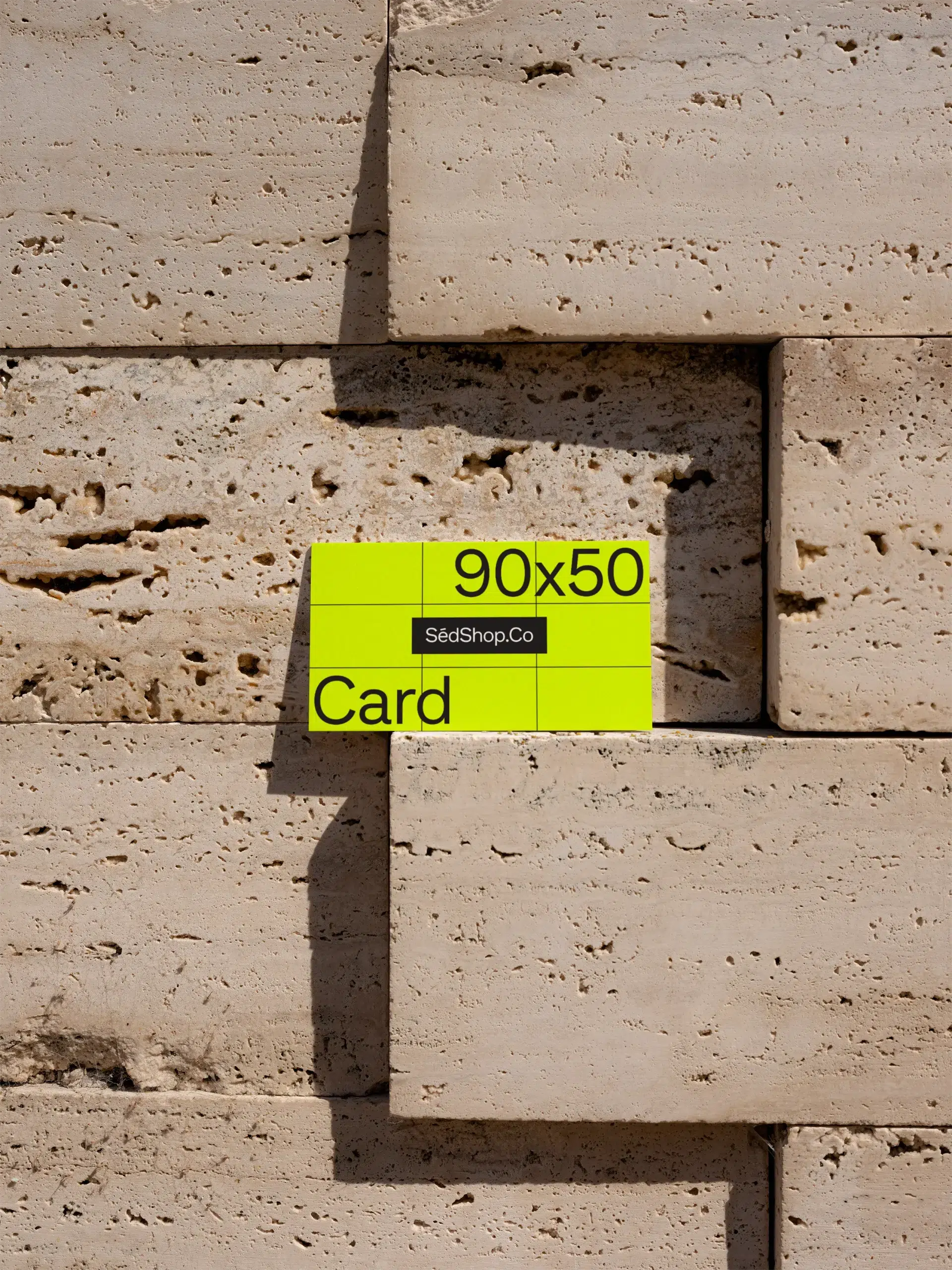
SédShop.Co
SédShop.Co offers a variety of minimalist mock-ups that can be used for branding, packaging, website presentations, billboards and more.
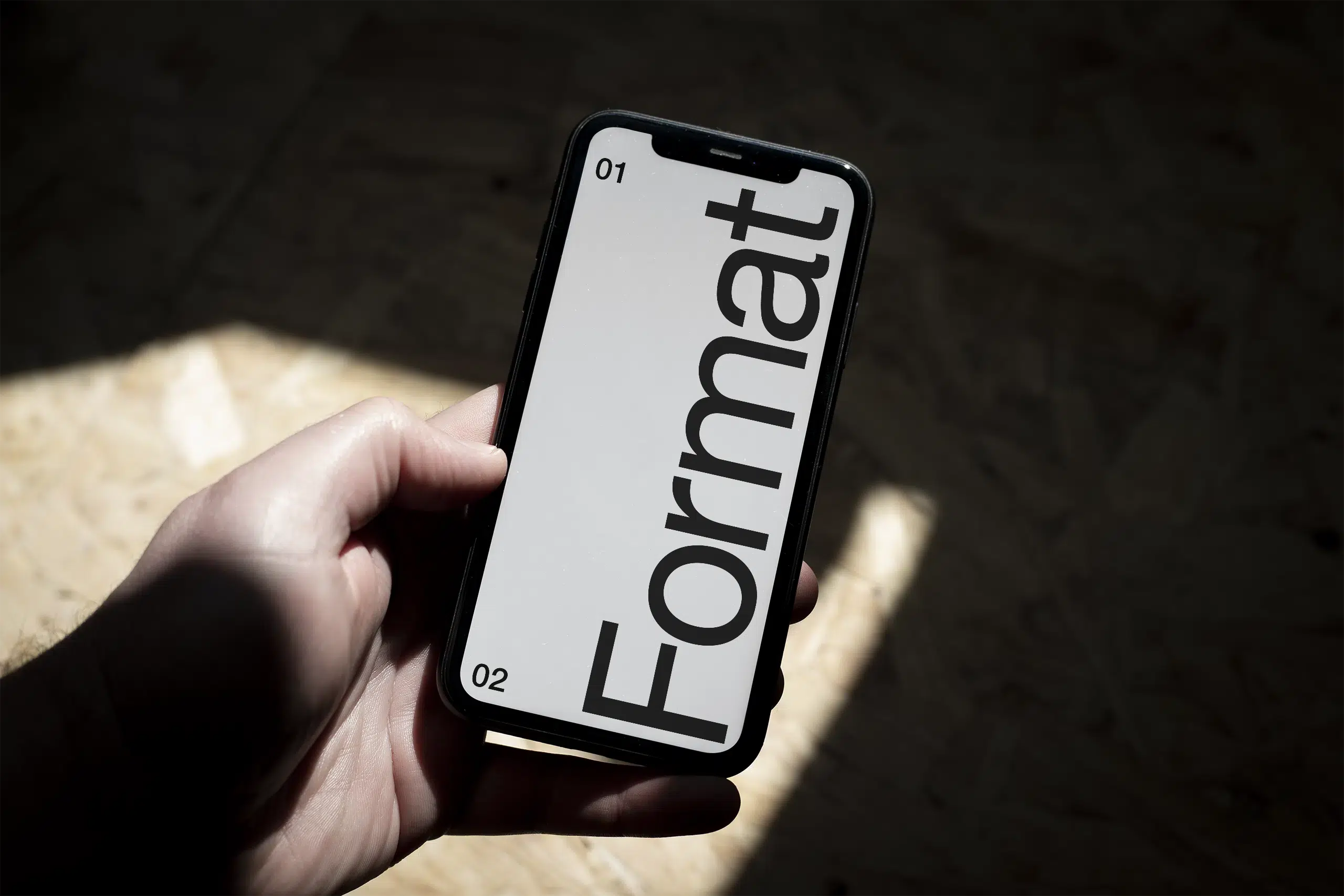
Hazard Mockups
Hazard Mockups offers high-quality, realistic mockups of a variety of items, including devices, books and stationery.
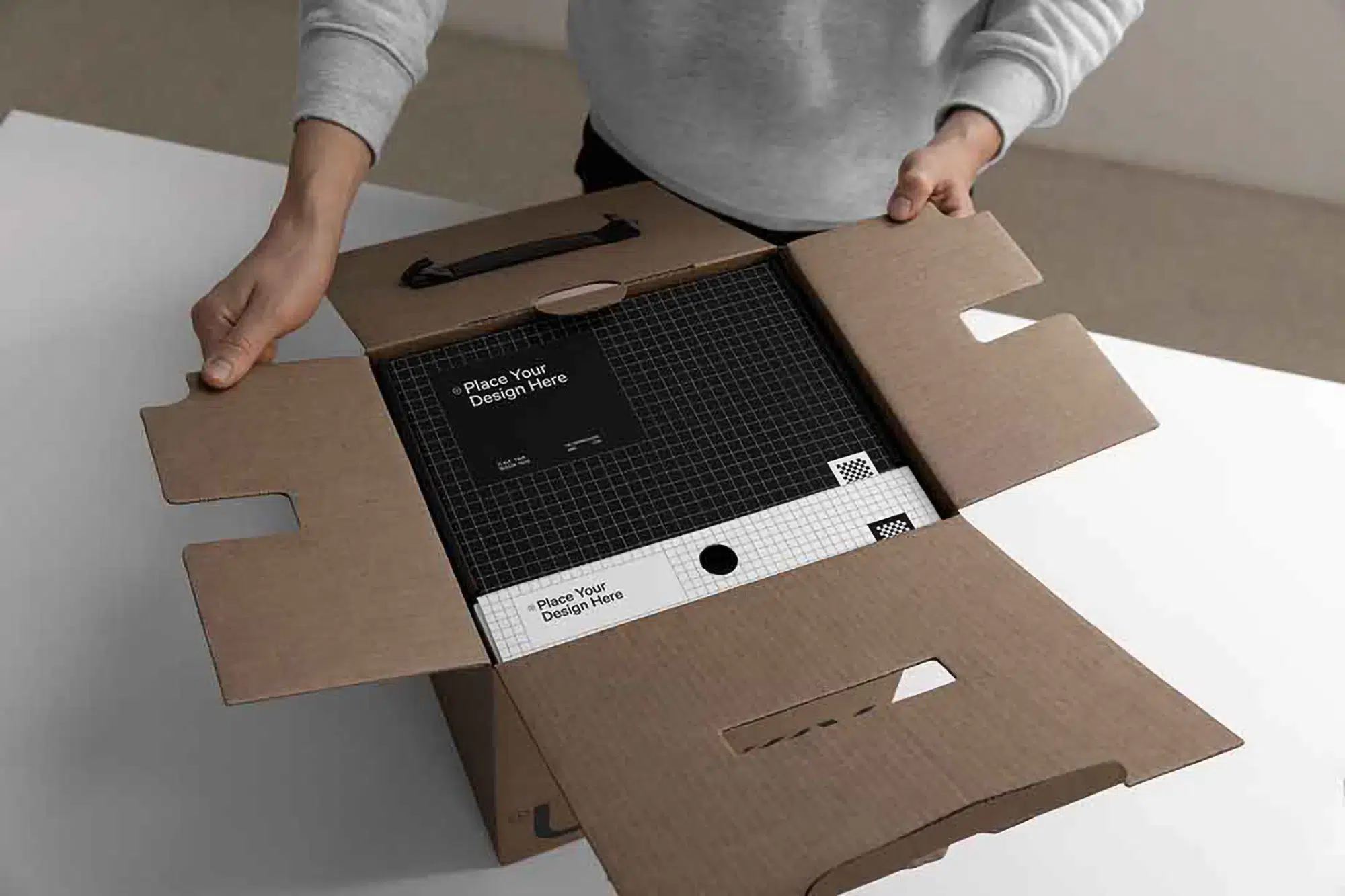
Darkroom
Darkroom has a small yet beautiful selection of minimal packaging mockups you won’t find anywhere else. They’re really versatile, which means you can probably use the same mockup for multiple projects.
Plus, they donate 10% of their profits to building schools in developing nations—so they’re good guys to support.

Further reading
If you are looking for more suggestions, you might like my article on premium mockups.
Newsletters & communities
Sweathead by Mark Pollard
Sweathead offers a fantastic community of strategists of all levels, sharing ideas, resources, experience and even jobs. I’m part of the Facebook group, which I found really helpful when starting out.
The Sociology of Business
The Sociology of Business is one of the few newsletters I’ll actually read. Ana’s background in sociology gives her an interesting perspective on topics such as brand, business and culture. She publishes her thoughts on Substack.
Podcasts
I have to admit that I’m not usually a big fan of podcasts. But these ones are really good, and I tune in every now and again.
On Strategy Showcase with Fergus O’Carroll
The On Strategy Showcase podcast offers an insight into the strategies behind some of the most well-known campaigns and brands.
Sweathead Podcast with Mark Pollard
Mark Pollard talks strategy with some of the biggest—and smaller—names in the advertising industry.
Let’s Talk Branding with Stef Hamerlinck
Stef talks to many interesting people about branding. He interviewed Rory Sutherland, Jenni Romaniuk and many more.
Just Branding with Jacob Cass & Matt Davies
Just Branding is a good podcast for anyone new to branding. It explores branding concepts, tools and more.
Publications and blogs
Fonts in Use
I really like this site. It’s a living archive of typography in the wild — think branding, packaging, editorial design, signage, and digital interfaces.
What makes it special is that each example is tagged by typeface, industry, format, and more, making it a brilliant resource if you’re looking for a specific style or use case. It’s also just plain satisfying to scroll through.
The Dieline
The Dieline is one of the best-known publications in the packaging design world.
It focuses on how brands present themselves through form, material, and shelf presence—often highlighting the storytelling behind each concept.
While I don’t design much packaging, it’s nevertheless inspiring.
Identity Designed
Curated by designer and author David Airey, Identity Designed is a showcase of thoughtful branding projects from studios around the world.
Each case study includes visual assets, the design thinking behind the work, and sometimes even insights from the clients.
LSN Global
LSN Global by The Future Laboratory explores consumer and cultural trends through a design and business lens.
While much of their deep research sits behind a paywall, they regularly publish free articles that cover everything from emerging aesthetics to shifts in consumer behaviour.
A good one to bookmark if you want to stay ahead of the curve.
Wunderman Thompson
Their blog is a goldmine of insights into marketing strategies, brand innovation, and emerging trends. Expect a mix of big-picture thinking and practical takeaways.
TrendWatching
TrendWatching shares free and paid reports, articles and case studies on consumer behaviour and cultural shifts. Great for keeping a pulse on what’s next.
Tools
Elementor
If you’re building websites on WordPress, Elementor is hands-down one of the easiest and most flexible tools out there.
I use it to create client websites that not only look great but are also easy for them to maintain.
Coolors
Coolors is my favourite tool for creating colour palettes. It offers a palette generator, contrast checker, and all sorts of helpful features to get your brand colours looking spot on—whether you’re starting from scratch or refining your scheme.
Semrush
To understand how your website is doing on Google, Semrush lets you track rankings, monitor backlinks, and dive into SEO data that helps you improve.
I’ve been using the free version for a while and get plenty of value from it—well worth trying if you want to grow your reach.
Grammarly
Grammarly catches grammar, spelling and tone issues before your text is published. I find the free version really useful for writing emails, blog posts and website copy. I even tried the premium version for a year. It’s good, too. But honestly, the free version is fine.
DeepL
I nowadays use DeepL more often than Grammarly, as it’s brilliant for rewriting things, finding synonyms or just improving the flow of a sentence.
The write feature is especially handy when I need a quick rephrase that sounds surprisingly human. Plus, DeepL’s translations are some of the best out there—great if you work in multiple languages like I do.
Hemingway Editor
This tool helps make your writing clearer. If a paragraph feels a bit clunky, I run it through Hemingway to simplify things.
It finds hard-to-read sentences and keeps me from overcomplicating things.
Final thoughts
You don’t have to do everything at once. Just start where you are and with what you have. Bookmark a few useful links, read one book or download my brand-building checklist.
But remember, these tools won’t build your brand for you. Nevertheless, they’ll help you get started, or if you’re a designer, develop your skills.
Title image by Anna Shvets





